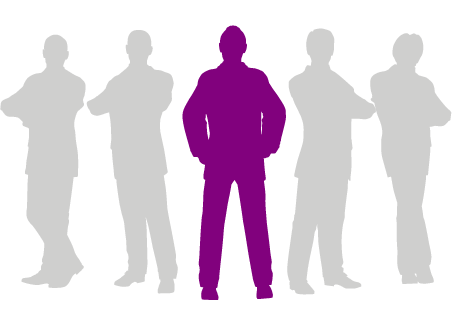Recently, I’ve watched this short interview with Brian Solis about the future of social networks. The interesting point has been made about privacy – Brian argues that due to the different social graphs and increasing social importance of the updates (status) social networks of the future will have to tailor the content to context – the right content to the right audiences at the right time – it’s kind of the new J-I-T communication system concept and tools will have to be developed. While I agree with these suggestions I also see some different trends which may reduce the need for such tools.
Everyone who likes you will listen
Social media has started from the idea of opines and transparency. The first bloggers wanted to share their personal experience with the whole world on their web dairies or journals. The innovators were driven by the idea that the world can be the audience not only of the big media companies but of common personalities. At those days bloggers ceternaly didn’t hide much and privacy concern was the last thing to worry about. So what have changed now? Social media has become a norm and instead of planed few international friends the certain messages of bloggers and other social media citizens has reached millions, including their friends, families, employees. Why it’s a bad thing? I think it’s not and that’s my main point – it’s not bad to reach the mass audiences with a single update / everyone who are willing to listen will listen , who are not will not. The problem is that we are afraid of ourselves to transmit the same messages to everyone and can’t figure it out how to make people listen to what we have to say. Simply put I think it is not a senders worry what messages the receiver gets (as he will setup filters in order to get the right messages anyway), but how to make him want to listen to your messages at all.
Well, I think that’s where personal branding comes in. I noticed the trend that people with the strong personal brands just can’t care less about delivering mixed messages or tailoring the messages to different audiences on their social networking accounts. People who like these personal brands (Guy Kawasaki, David Armano and etc.) don’t really mind these unrelated industry messages as it makes them more believable and attachable.
The networking culture is changing
The other trend which I’ve noticed in social media environment is growing social media consciousness and changing culture of sharing. People hear all these stories about other people being fired for unreasonable behaviour as a result they pay more attention before pressing “publish” button. They also start choosing their friends more carefully, as they don’t want to be associated with doubtable personalities. I think it’s a good thing that Facebook and other social networks exposes the pointless relationships and friendships. I noticed that there is forming a common understanding (at least in my friends circle) that you don’t publish anything related to others that you don’t want to be published about you. After the wild freedom on the web people are starting to embrace the idea that digital world is no different to real world (or it’s just an extension of a real one), with same responsibilities, liabilities and freedoms.
How these trends affect businesses?
Well I think businesses will have to embrace these changes together with the crowd and as businesses are just the groups/communities of people empowered by managed processes so I don’t see any difference in their communication strategies if they really want to create the relationship with the real people/customers. They will have to stick with “love it or hate it” strategy and concentrate on building or attracting strong personal brands within the company in various departments who would be happy to embed the company’s values able to carry the company’s messages far away from it’s borders.
The issue
The only problem that I see with the perspective of openness is that in a short term before the complete adoption of one personality it may decrease the creativity of some people, because some of the people may feel like put into the frames in terms of expression, and it may take some time to break through.









Recent Comments